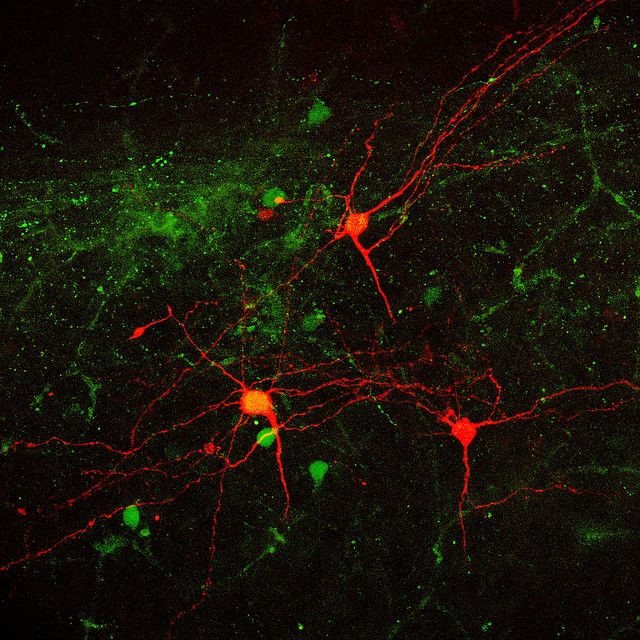Our Mental Noise Grows More Intense As We Age, So Our Brains Lose Processing Speed Over Time

Circuits in the brain grow noisier over time, a series of new experiments demonstrated, and this contributes to slower processing speeds in aging brains.
“Insights into the biological basis of age-related cognitive decline provides new possibilities for improving the quality of life,” wrote first author Dr. Bradley Voytek, an assistant professor of cognitive science and neuroscience at UC San Diego, and his colleagues.
White Noise?
“As we age, we are faced with the likelihood that our cognitive faculties will decline, our neural and behavioral response times will be slower and more variable, our memories less certain, and our attention less focused,” noted the authors in their introduction. (Yikes!) The neural noise hypothesis, then, is an attempt to account for these many age-related changes.
The hypothesis is very simple: It proposes the signal-to-noise ratio in the brain's circuitry grows smaller over time and this leads to worse performance. Just as a friend's voice in a room containing 20 talking people is more difficult to distinguish than in a room containing only four people, older brains have more noise, which makes it difficult to pick out the friendly signal. Voytek and his colleagues explored this neuronal noise theory to see if it held water.
In one experiment, Voytek collected and analyzed voltage measurements from electrodes directly placed on regions of the brain during surgery. The 15 people involved in this study were epileptic patients and their neurosurgeons were searching for the specific brain region triggering their seizures. During parts of the surgery, patients remained conscious and alert and so were able to perform a simple listening task.
Because the experiment was intracranial, all the signals came directly from within the brain. The researchers found an association between older age and noise in both the frontal cortex and the temporal cortex. From past work, the researchers knew that a high degree of coordinated brain oscillations occur in these regions and so this led to another experiment.
Natural Oscillations
For the second experiment, Voytek and his co-researchers collected data from EEG electrodes placed on the scalps of 11 participants between the ages of 20 and 30 and compared this to similar data gathered from 13 participants between the ages of 60 and 70. While under observation, the participants performed a visual memorization test. On average, the older participants performed worse than their younger peers.
Analyzing the data, Voytek and his colleagues figured this poorer performance was due to additional noise in nerve circuits in the visual cortex where neurons did not coordinate as well in generating lower-frequency oscillations. The “noise” measured here was random signaling that did not fit the pattern of the brain's natural oscillations. Emerging research suggests that oscillations might prime nerve circuits to respond more efficiently to stimuli.
Voytek and his colleagues suggest their work and their methods might contribute to an exploration of the “neural underpinnings of cognitive changes across a variety of disease states” including autism, Parkinson’s, and schizophrenia. Each of these mental disorders is associated with breakdowns in neural oscillations, the researchers noted in their study.
Despite these new findings, many scientists acknowledge the fact that older brains hold more overall knowledge, which also may contribute to decreased processing speeds, as this MIT News article suggests. With more information to sort, a brain might take longer to arrive at a conclusion. There are many positives to the aging brain... this new study should not stop you from going down swinging.
Source: Voytek B, Kramer MA, Case J, et al. Age-related Changes in 1/f Neural Electrophysiological Noise. Journal of Neuroscience. 2015.



























